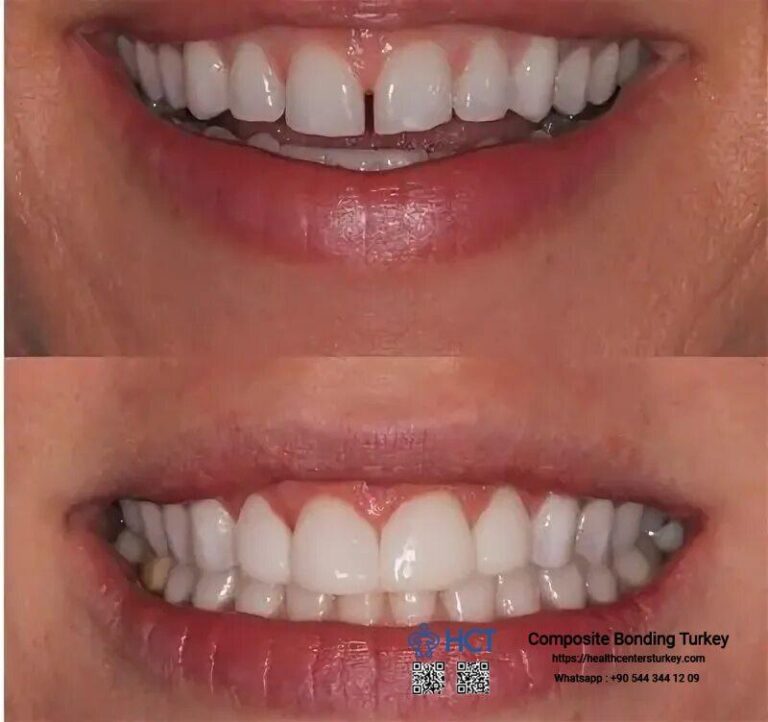Dental Travel: Experience Affordable Care in Turkey
Dental Travel: Experience Affordable Care in Turkey
Blog Article
Full-Service Dental Evaluations throughout Antalya

Dental implants have become a focus in trendy dentistry, providing a reliable resolution for these facing tooth loss. Among the multiple advantages they provide, one significant side value contemplating is their influence on adjacent teeth. Understanding how dental implants affect surrounding teeth aids in making knowledgeable choices about oral health.
When a tooth is lost, neighboring teeth can simply shift toward the house left behind. This motion can lead to misalignment, which compromises the general bite and performance of the mouth. Dental implants mimic natural tooth roots, thereby sustaining the position of adjacent teeth.
Comprehensive Dental Assessments across Turkey
The stability supplied by an implant is crucial, because it helps in preserving not just the physical alignment but additionally the structural integrity of the jawbone. When a tooth is missing, the underlying bone can start to deteriorate due to lack of stimulation. An implant exerts strain on the bone throughout chewing, similar to a natural tooth, which promotes bone health.
In some instances, a bridge or partial denture may be considered as an alternative to implants. While these options might restore some performance, they can place additional stress on neighboring teeth. Bridges often require submitting down the surrounding teeth to accommodate the anchors, thereby affecting their health over time. Dental implants, on the opposite hand, don't alter existing teeth, making them a more conservative alternative.
All-Inclusive Dental Packages Featuring Implants
Hygiene becomes another crucial factor when considering adjacent teeth within the context of implants. With dental implants, the person can maintain a regular hygiene routine much like natural teeth. Flossing and brushing around the implant are straightforward, making certain that the gum tissue stays wholesome and minimizing the risk of gum disease that could adversely have an effect on adjacent teeth.
Moreover, the supplies utilized in dental implants are biocompatible. This means they're designed to integrate well with the body, decreasing the possibilities of an opposed response. This attribute not only makes the implant safe but in addition protects nearby teeth from potential points that would come up as a outcome of contamination or infection.
In phrases of aesthetics, dental implants offer a natural look and feel, closely resembling original teeth. Adjacent teeth benefit from this aesthetic attraction as properly. When an implant is placed, the surrounding gum tissue can be shaped to mimic natural contours, thereby enhancing the general appearance of the smile. This aesthetic issue can encourage people to spend cash on their oral care routines, benefiting each the implants and adjacent teeth in the long term.
Innovative Dental Technologies to Suit Your Needs
Another concern is the potential for gum disease, which might have an result on the health of adjacent teeth. Gum disease can happen when plaque builds up round teeth and implants. Regular dental visits and acceptable oral hygiene can mitigate this concern. The presence of implants can even function a motivator for higher dental hygiene practices, as people turn into extra acutely aware of sustaining their general mouth health.
Studies have shown that dental implants can contribute to a big enchancment in quality of life. Patients typically experience increased confidence and are less hesitant to smile or engage in social interactions. A healthy and well-maintained smile indirectly promotes higher take care of adjacent teeth, as individuals tend to turn out to be extra conscious of their overall oral hygiene.
One often-overlooked aspect is the psychological impression of dental implants on sufferers. Knowing that implants provide long-term options can ease the nervousness associated with tooth loss. With fewer worries about future tooth shifts, patients usually have a tendency to invest time and effort into caring for their teeth, which incorporates adjacent teeth.
In conclusion, dental implants serve as greater than only a solution for missing teeth; they play a pivotal function in sustaining the health and integrity of adjacent teeth. From preventing misalignment to selling gum health and enhancing aesthetics, the benefits are manifold. By opting for implants, people cannot solely restore performance but also foster a more healthy oral surroundings for surrounding teeth. The psychological and aesthetic benefits additional contribute to an general enhanced quality of life.
Elevate Your Oral Health through Cosmetic Dentistry
In the long term, understanding how dental implants affect adjacent teeth can guide people in making empowered selections relating to their dental health. The integration of these implants into the mouth acts as a stabilizing pressure, safeguarding each the bodily alignment and performance of neighboring teeth, while selling a long-lasting, healthy smile.
- Dental implants usually do not exert stress on adjacent teeth, maintaining their integrity and reducing the chance of shifting or misalignment.
- The placement of an implant often encourages higher oral hygiene habits, positively influencing the health of adjacent teeth through improved cleansing practices.
Discover Top-rated Dental Clinics in Antalya
- In some circumstances, dental implants can stimulate the encompassing bone, which helps protect the natural teeth's position and total dental structure.

- The gap left by missing teeth can result in bone loss; dental implants can prevent this, thereby defending adjacent teeth from potential complications.
- Key Insights on Dental Procedures in Turkey
The Growing Popularity of Dental Treatments
- By restoring the function of a missing tooth, implants help distribute chunk forces evenly, decreasing wear and stress on neighboring teeth.

- Properly placed dental implants can act as a support structure, preventing unwanted motion of adjacent teeth ensuing from tooth loss.
- The presence of an implant could improve the aesthetic appearance of surrounding teeth by filling in gaps and supporting facial structure.
Navigate the Top Alternatives for Dental Care across Turkey
- Dental implants remove the necessity for adjacent teeth alteration, not like bridges, which require reshaping the nearby teeth for support.
- Implants also reduce the chance of gum disease in comparability with different tooth replacement choices, not directly benefiting adjacent teeth by selling total oral health.
Transform Your Smile through Modern Dental Practices in Turkey.
- Long-term success of dental implants is linked to the health of surrounding teeth, emphasizing the importance of regular dental check-ups and maintenance.
How do dental implants affect adjacent teeth?
Incredible Transformation from Dental Treatments in Turkey
What are dental implants and how do they work with adjacent teeth?undefinedDental implants are artificial tooth roots placed into the jawbone to support replacement teeth. They don’t affect adjacent teeth directly, as they're impartial constructions. Instead, they might help keep the integrity of surrounding teeth by preventing bone loss.
Can dental implants cause damage imp source to adjacent teeth?undefinedIf positioned accurately, dental implants shouldn't harm adjacent teeth. However, improper placement can lead to issues like misalignment or pressure, emphasizing the significance of choosing an experienced dental skilled.
Will dental implants promote bone development round adjacent teeth?undefinedYes, dental implants help stimulate the jawbone, which can encourage bone development. This can profit adjacent teeth by maintaining bone density and stability in the space.
Explore Comprehensive Oral Procedures in Turkey
Should I fear about gum disease affecting adjacent teeth after getting an implant?undefinedGood oral hygiene is crucial after getting an implant. Gum disease can still affect adjacent teeth, however a correctly maintained implant doesn't improve that risk. Regular dental visits can help monitor and preserve gum health.
What occurs to adjacent teeth if I lose a dental implant?undefinedIf a dental implant fails or is lost, adjacent teeth may shift because of adjustments in chew alignment and support structure. This may lead to misalignment or additional tooth loss if not addressed.
Are there any particular care requirements for adjacent teeth after getting implants?undefinedMaintaining good oral hygiene practices, including common brushing, flossing, and dental check-ups, is important for both dental implants and adjacent teeth to forestall decay and gum disease.
A Complete Guide to Dental Tourism within Turkey
Do dental implants assist help adjacent teeth when chewing?undefinedAbsolutely. Implants can improve overall bite operate, which might alleviate stress on adjacent teeth throughout chewing. This can lead to better distribution of forces, promoting oral health.
How can I prevent issues with adjacent teeth and implants?undefinedConsistent dental care, including skilled cleanings and examinations, common brushing and flossing, and following the original source your dentist’s aftercare instructions, are key to preventing complications.
Can adjacent teeth transfer if I even have a dental implant?undefinedAdjacent teeth may transfer if they aren't well-supported, particularly after tooth loss. A dental implant helps preserve the structure, decreasing the risk of shifting teeth. Report this page